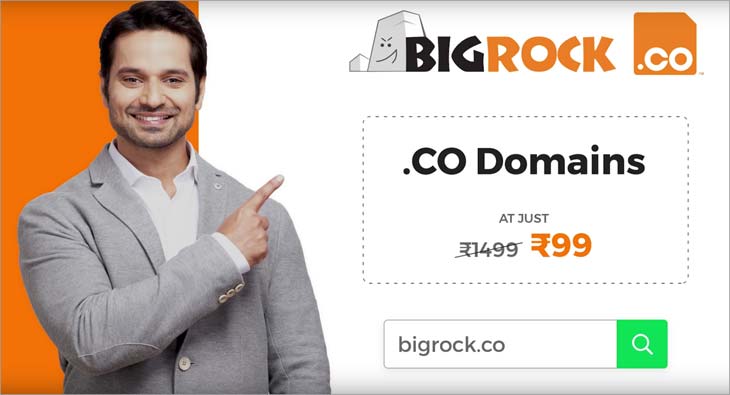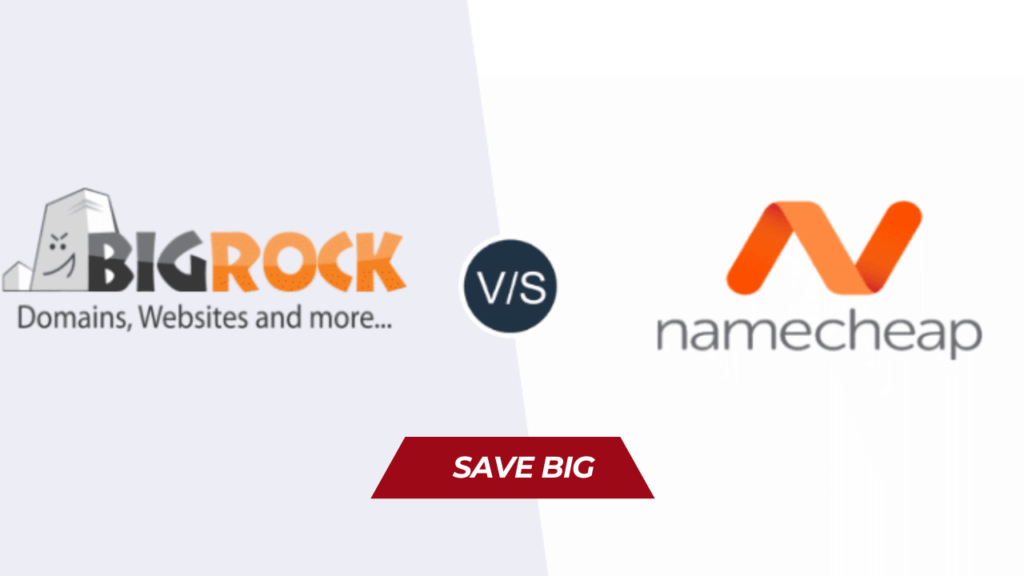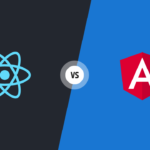If you want to start a website, the very first thing you need is a name for your website, also called a domain name. After that, you need a place to store your website, which is called web hosting.
- 🔸 BigRock
- 🔸 Namecheap
- Domain Registration Comparison
- 🔸 BigRock – Domain Name Buying
- 🔸 Namecheap – Domain Name Buying
- ✅ Which One Is Better for Domains?
- Web Hosting Comparison
- 🔸 BigRock Hosting
- 🔸 Namecheap Hosting
- ✅ Which One Is Better for Hosting?
- 💖 You Might Also Like
- Speed, Uptime & Performance
- 🔸 BigRock – Speed, Uptime & Performance
- 🔸 Namecheap – Speed, Uptime & Performance
- ✅ Which One is Better for Speed & Uptime?
- Ease of Use (UI/UX)
- 🔸 BigRock – Ease of Use (UI/UX)
- 🔸 Namecheap – Ease of Use (UI/UX)
- ✅ Which One is Better for Ease of Use?
- Customer Support
- 🔸 BigRock – Customer Support
- 🔸 Namecheap – Customer Support
- ✅ Which One is Better for Support?
- ✨ More Stories for You
- Security Features
- 🔸 BigRock – Security Features
- 🔸 Namecheap – Security Features
- ✅ Which One is Better for Security?
- Quick Summary:
- Pricing & Value for Money
- 🔸 BigRock – Pricing
- 🔸 Namecheap – Pricing
- ✅ Who Offers Better Value?
- Pros & Cons
- 🔷 BigRock – Pros & Cons
- 🔷 Namecheap – Pros & Cons
- 🌟 Don't Miss These Posts
- 🟩 Final Verdict So Far:
- Winner: Which One Should You Choose?
- ✅ Choose BigRock If:
- ✅ Choose Namecheap If:
- Conclusion
Now, here’s where two big names come in – BigRock and Namecheap. Both companies help you buy a domain name and host your website so people can see it on the internet.
But the question is – which one is better?
Which one should you choose?
Don’t worry! In this article, we’ll compare BigRock and Namecheap in a simple and clear way, so you can easily understand which one is perfect for your website journey.
BigRock vs Namecheap
Let’s first understand who these two companies are – like getting to know two players before a match!
🔸 BigRock
BigRock is a company from India. It started in 2010 and is now one of the popular choices for people in India who want to start a website.
They help you:
- Buy a domain name (like www.mywebsite.com)
- Host your website (keep your website live on the internet)
- Get email services, website builder tools, and more.
BigRock is great for beginners and small business owners in India because they offer:
- Support in local language
- Prices in Indian Rupees (INR)
- Easy payment options like UPI, net banking, etc.
🔸 Namecheap
Namecheap is a company from the United States, started way back in 2000. It’s trusted by millions of people around the world.
They are known for:
- Selling cheap domain names
- Giving free privacy protection
- Offering reliable hosting services
Many people love Namecheap because:
- It’s simple to use
- Very honest with pricing
- No hidden fees
- Great customer support
Domain Registration Comparison

Let’s talk about buying a domain name – this is like buying a name for your website, such as www.myshop.com.
Both BigRock and Namecheap allow you to buy domain names, but there are some small differences.
🔸 BigRock – Domain Name Buying

- You can buy popular domain names like .com, .in, .org, etc.
- Prices are in Indian Rupees, which makes it easy for Indian users.
- Sometimes you get discounts for the first year.
- But – privacy protection (WHOIS Guard) is not always free with BigRock. You may need to pay extra.
🔸 Namecheap – Domain Name Buying
- Namecheap also lets you buy all the common domain names.
- Prices are in US Dollars, but you can still pay using cards or international wallets.
- Namecheap gives you FREE privacy protection with every domain. That means your personal details stay safe.
- Their dashboard is clean and easy to use for beginners.
✅ Which One Is Better for Domains?
- If you’re in India and want to pay in INR, BigRock is simple and local.
- If you want free privacy protection and global trust, Namecheap is the better choice.
Web Hosting Comparison
Now let’s look at web hosting – this is where all your website files and data are stored, like a house for your website.
Both BigRock and Namecheap offer different types of hosting like:
- Shared Hosting (cheap and beginner-friendly)
- WordPress Hosting (for blogs and WP websites)
- VPS Hosting (for high-traffic websites)
🔸 BigRock Hosting
- Hosting plans start cheap – good for beginners.
- Their servers are located in India and the US.
- You get cPanel, a control panel to manage your site.
- You can call their customer support or chat in case you get stuck.
- Performance is decent, but not the fastest.
🔸 Namecheap Hosting

- Hosting is also affordable, and sometimes even cheaper than BigRock.
- Their WordPress hosting (EasyWP) is very fast and optimized.
- Servers are in the US and UK.
- They offer a 100% uptime guarantee, which means your site is always live.
- Support is fast and helpful – 24/7 live chat.
✅ Which One Is Better for Hosting?
- If you want faster speed, better uptime, and WordPress hosting, go for Namecheap.
- If you want local support in India, BigRock is easier to work with.
💖 You Might Also Like
Speed, Uptime & Performance
When we talk about speed and performance, we mean how fast your website loads and how reliable it is. This is super important because a slow website can annoy visitors and make them leave. Also, if your website is down a lot, people won’t be able to see it.
🔸 BigRock – Speed, Uptime & Performance
- BigRock’s website speed is decent, but it’s not the fastest.
- They have servers in India and the US, which means their services work well for Indian users but may be slower for people in other countries.
- Uptime is important because it shows how often your website is online. BigRock guarantees around 99.9% uptime, which is pretty good.
- However, some users report that their websites sometimes take a little longer to load, especially during high traffic.
🔸 Namecheap – Speed, Uptime & Performance
- Namecheap is known for its fast loading speeds, especially for WordPress websites.
- They have servers in the US and the UK, and the speed is usually great for visitors from anywhere.
- Uptime is even better with Namecheap, as they promise 100% uptime (meaning your website should almost never go down).
- Overall, users love Namecheap’s speed and performance, especially if you need your website to be fast and reliable.
✅ Which One is Better for Speed & Uptime?
- If you want faster speed and more reliable uptime, Namecheap is the better choice.
- BigRock is okay for local websites in India but may be a little slower for international users.
Ease of Use (UI/UX)
When it comes to Ease of Use, we’re talking about how easy it is to set up and manage your website, domain, and hosting. This includes things like control panels, dashboards, and how simple it is to find things.

🔸 BigRock – Ease of Use (UI/UX)
- BigRock has a simple dashboard, but some users find it a bit messy.
- The control panel (cPanel) is easy to use for beginners, but it’s not as modern as some other platforms.
- Domain management and hosting settings are not always clear for first-time users.
- However, BigRock offers local support in India, which can help if you’re stuck with anything.
🔸 Namecheap – Ease of Use (UI/UX)
- Namecheap has a clean and modern dashboard that’s easy to navigate.
- Their domain management panel is super user-friendly and even allows you to quickly find your settings.
- The control panel for hosting (like for WordPress or other websites) is also easy to understand, especially if you are a beginner.
- Overall, Namecheap’s UI/UX is more modern, making it a better choice for people who want everything to be simple and fast.
✅ Which One is Better for Ease of Use?
- Namecheap is the winner for Ease of Use. Their interface is modern, simple, and easy for beginners to understand.
- BigRock is good but can be a little harder to figure out, especially if you’re new to websites.
Customer Support
Imagine you’re stuck with something – maybe your website isn’t opening, or your domain isn’t working. You need quick help, right? That’s where customer support comes in. Let’s see how BigRock and Namecheap help their users.

🔸 BigRock – Customer Support
- BigRock offers 24/7 support, which means you can contact them anytime.
- You can talk to them via:
- Phone call
- Live Chat
- They also have a support portal where you can read guides and tutorials.
- Since they are an Indian company, you get support in Indian languages, which is helpful for local users.
- However, some users say that response time is a bit slow, especially during busy hours.
🔸 Namecheap – Customer Support
- Namecheap also offers 24/7 live chat support.
- Their team is known for being friendly, fast, and helpful.
- They don’t offer phone support, but their live chat works great.
- They have a huge knowledge base with step-by-step guides and videos for beginners.
- Most users are happy with how quickly Namecheap solves problems.
✅ Which One is Better for Support?
- If you want phone support in India, BigRock is better.
- If you prefer fast and expert help online, Namecheap wins with their live chat and helpful articles.
✨ More Stories for You
Security Features
Security is super important. You don’t want your website to get hacked or your personal info to be exposed. Let’s see what both companies offer to keep your website safe and secure.
🔸 BigRock – Security Features
- BigRock provides basic security like:
- SSL Certificates (These show a secure “lock” on your website)
- SiteLock (A tool to scan your website for malware – extra cost)
- Spam Protection for emails
- But, you may need to pay extra for many security tools.
- Privacy protection for domains (WHOIS guard) is not always free.
🔸 Namecheap – Security Features
- Namecheap takes security very seriously. They offer:
- Free SSL Certificates with many hosting plans
- Free Domain Privacy Protection – your personal info stays hidden
- Two-Factor Authentication (2FA) for account login
- Malware protection and firewall features for websites (optional upgrades)
- Overall, Namecheap gives more free security tools than BigRock.
✅ Which One is Better for Security?
- Namecheap clearly wins when it comes to free and strong security features.
- BigRock also has security tools, but you may need to pay more for full protection.
Quick Summary:
| Feature | BigRock | Namecheap |
|---|---|---|
| Support Options | Phone, Email, Live Chat | Live Chat, Help Center |
| Support Speed | Average | Fast and Friendly |
| Free SSL | Sometimes | Yes, with most plans |
| Domain Privacy | Paid | Free |
| Extra Security Tools | Available (Paid) | Available (Some Free, Some Paid) |
Pricing & Value for Money
Let’s be honest – we all care about how much it costs and what we get in return. So, which one gives you better value for your money – BigRock or Namecheap?
🔸 BigRock – Pricing
- Domain Name (.com): Around ₹799/year (may vary with offers)
- Shared Hosting: Starts from ₹69/month (with big discounts for first year)
- WordPress Hosting: Starts around ₹179/month
- SSL Certificate: Paid (starts around ₹499/year)
- Domain Privacy: Extra charge
👉 BigRock offers cheap intro prices, but renewal rates can be higher. Also, many features like SSL and privacy cost extra.
🔸 Namecheap – Pricing
- Domain Name (.com): Around $9/year (approx ₹750)
- Shared Hosting: Starts from $1.98/month (with deals)
- WordPress Hosting (EasyWP): Starts from $1/month for the first month
- SSL Certificate: Free for 1 year (then paid)
- Domain Privacy: Always free
👉 Namecheap has clear pricing, and even though it’s in dollars, it often turns out to be cheaper in the long run, especially because many features are free.
✅ Who Offers Better Value?
But if you want more free features and better long-term savings, Namecheap gives more value for your money.
If you’re looking for lowest first-year prices, BigRock might look attractive.
Pros & Cons
Let’s make it even simpler. Here’s a quick look at the strengths and weaknesses of both companies.
🔷 BigRock – Pros & Cons
✅ Pros:
- Indian company with local support
- Prices in INR, easy for Indian users
- Offers phone support
- Good for basic websites
❌ Cons:
- Privacy protection costs extra
- Renewal prices are higher
- Speed and uptime are average
- Dashboard can feel a bit cluttered
🔷 Namecheap – Pros & Cons
✅ Pros:
- Free domain privacy included
- Clean and easy-to-use dashboard
- Faster speed and better uptime
- Great WordPress hosting (EasyWP)
- Excellent customer support (live chat)
❌ Cons:
- Prices shown in USD, not INR
- No phone support, only live chat
- For India-focused websites, server distance may slightly affect speed
🌟 Don't Miss These Posts
🟩 Final Verdict So Far:
If you want:
- Local support
- INR billing
- Basic hosting for small Indian websites
👉 Go with BigRock
If you want:
- Free privacy
- Better security and speed
- A clean experience and helpful support
👉 Go with Namecheap
Winner: Which One Should You Choose?
Now that we’ve compared BigRock vs Namecheap in every important area – like speed, support, security, and pricing – it’s time to decide which one is better for you.
Here’s a simple way to choose:
✅ Choose BigRock If:
- You want a local Indian hosting provider
- You prefer to pay in Indian Rupees (INR)
- You need phone support and help in Indian languages
- You’re building a basic website mainly for Indian users
👉 BigRock is a good choice if you’re just starting out and want local support with easy payment options.
✅ Choose Namecheap If:
- You want better performance and speed globally
- You want free domain privacy, free SSL, and strong security
- You like a clean, easy-to-use dashboard
- You want more value in the long run, even if prices are in USD
- You’re creating a WordPress blog, business website, or portfolio
👉 Namecheap is the winner if you want more features, better security, and a smoother experience – especially for international or professional websites.
Conclusion
Both BigRock and Namecheap are reliable domain and hosting providers. The right choice depends on your needs.
- If you’re looking for affordable hosting in India with phone support, go with BigRock.
- If you want faster, more secure, and beginner-friendly service with better overall value, go with Namecheap.
🚀 Our Suggestion:
If your goal is to grow your website, blog, or business professionally – Namecheap is the smarter long-term choice.












